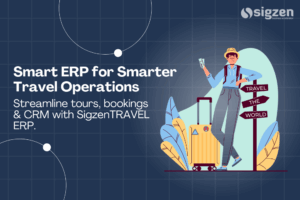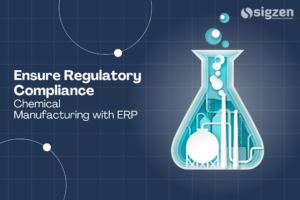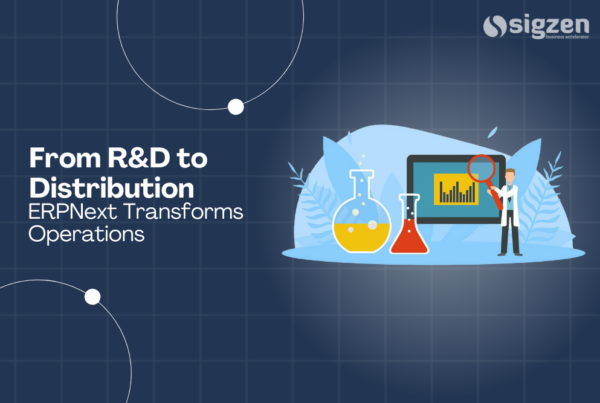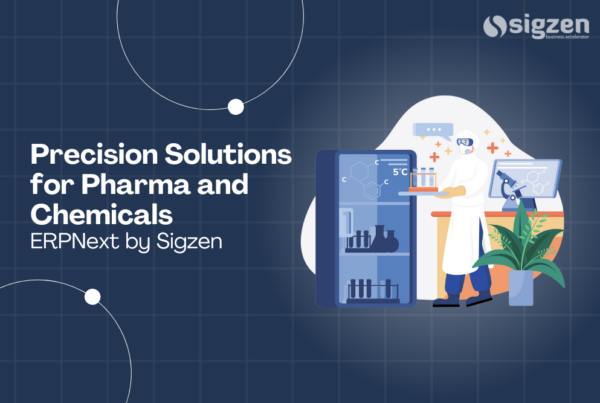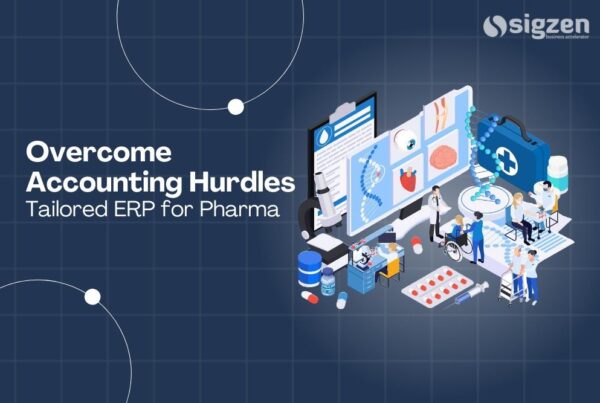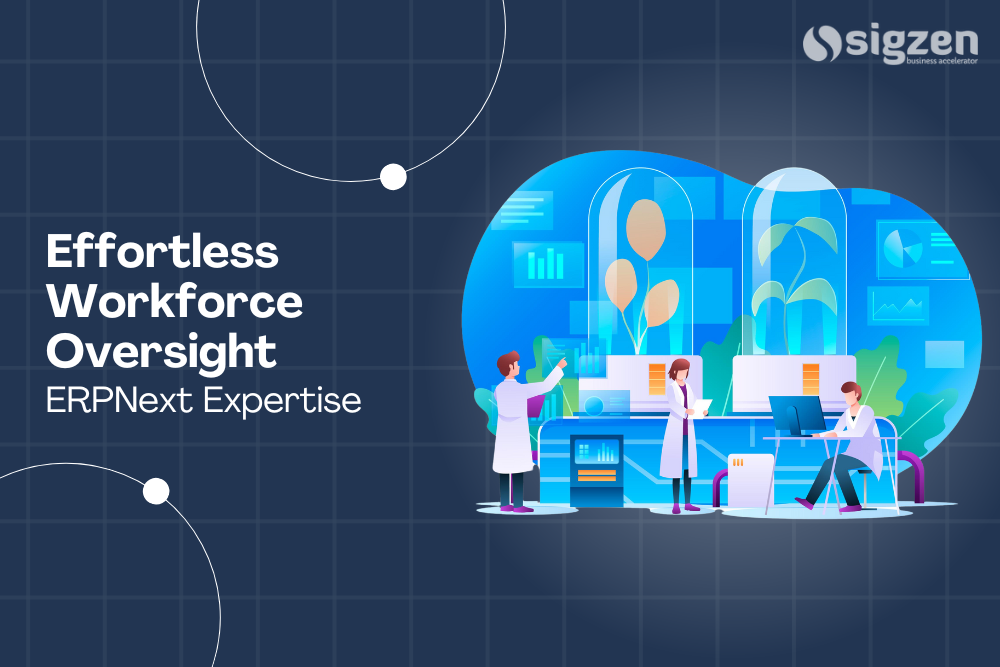
Introduction: Transforming Pharmaceutical Operations with ERPNext
The pharmaceutical industry faces unique challenges, including strict regulatory requirements, complex production workflows, and the need for consistent product quality. Managing workforce productivity while ensuring seamless production and adherence to quality standards demands advanced tools that streamline operations. This is where ERP for Pharmaceutical comes into play.
ERPNext, a robust enterprise resource planning system, offers tailored solutions for pharmaceutical businesses. It integrates production management for pharmaceutical operations, ERP quality management, and workforce optimization, enabling companies to enhance efficiency and compliance while maintaining profitability. This article explores how ERPNext can revolutionize pharmaceutical operations and workforce management.
Challenges in Pharmaceutical Workforce and Production Management
1. Regulatory Compliance
Pharmaceutical companies must adhere to stringent regulations, including FDA and EMA guidelines. Tracking compliance manually is error-prone and time-consuming.
2. Complex Manufacturing Processes
Pharmaceutical production involves multi-step workflows like formulation, blending, packaging, and quality control, requiring seamless coordination.
3. Workforce Productivity
Managing shifts, optimizing workloads, and ensuring adherence to protocols can overwhelm manual management systems.
4. Quality Assurance
Ensuring consistent product quality while minimizing wastage and errors is critical for maintaining brand reputation and consumer safety.
5. Data Integration
Disconnected systems across production, quality control, and workforce management lead to inefficiencies and hinder decision-making.
How ERP for Pharmaceutical Addresses These Challenges
1. Streamlined Production Management
ERPNext simplifies and automates complex pharmaceutical production workflows, ensuring efficiency and compliance. Key features include:
- Batch Tracking: Maintain detailed batch records to ensure traceability and compliance.
- Automated Workflows: Schedule and monitor production tasks in real-time to prevent delays.
- Capacity Planning: Optimize resource allocation to meet production goals.
Discover ERPNext’s production management features.
2. Integrated Quality Management
ERP quality management ensures products meet regulatory standards through automated checks and detailed records. Key capabilities include:
- Quality Control Integration: Conduct inspections at every stage of production.
- Non-Conformance Tracking: Identify and resolve deviations efficiently.
- Audit-Ready Reports: Generate compliance documents automatically to meet regulatory requirements.
Explore ERPNext’s quality management tools.
3. Workforce Optimization
ERPNext enhances workforce productivity by automating routine tasks, scheduling shifts, and monitoring performance:
- Shift Scheduling: Assign shifts and tasks based on employee skills and availability.
- Training Management: Track employee training programs to ensure regulatory compliance.
- Performance Metrics: Monitor productivity through detailed reports and dashboards.
4. Inventory and Stock Management
Accurate inventory management is crucial for pharmaceutical companies to avoid stockouts or overstocking. ERPNext provides:
- Real-Time Inventory Updates: Monitor stock levels and expiration dates across multiple warehouses.
- Automated Reordering: Generate purchase orders based on inventory thresholds.
- Raw Material Traceability: Ensure traceability of ingredients used in production.
Learn more about ERPNext’s inventory management features.
5. Data Integration and Scalability
ERPNext consolidates data from various departments into a unified platform, enabling seamless collaboration and informed decision-making:
- Centralized Data Access: Gain real-time insights across production, quality, and workforce management.
- Customizable Dashboards: Monitor KPIs like production efficiency and workforce utilization.
- Scalability: Adapt ERPNext to accommodate business growth and evolving operational needs.
Key Features of ERPNext for Pharmaceutical Companies
1. Batch and Lot Tracking
Ensure full traceability of raw materials and finished goods to meet regulatory requirements.
2. Compliance Documentation
Generate detailed reports and maintain records for audits and regulatory submissions.
3. Integrated CRM
Manage customer relationships and streamline order processing with built-in CRM tools.
4. Advanced Analytics
Leverage real-time data analytics for better decision-making and operational planning.
5. Cloud Accessibility
Access ERP features remotely for enhanced flexibility and oversight.
Benefits of Implementing ERP in the Pharmaceutical Industry
1. Enhanced Compliance
- ERP systems simplify compliance by automating documentation and providing real-time insights into regulatory adherence.
2. Improved Workforce Productivity
- Automated workflows, optimized scheduling, and performance tracking enhance employee efficiency and morale.
3. Higher Production Efficiency
- Real-time monitoring and capacity planning reduce bottlenecks, delays, and wastage.
4. Better Quality Assurance
- Integrated quality management ensures consistent product quality and minimizes the risk of recalls or defects.
5. Cost Savings
- ERP systems reduce operational costs by optimizing inventory, minimizing errors, and automating repetitive tasks.
Real-World Case Study: How ERPNext Transformed a Pharmaceutical Business
Challenge: A mid-sized pharmaceutical company faced inefficiencies in production scheduling, compliance tracking, and workforce management.
Solution: By implementing ERPNext, the company achieved:
- 30% increase in production efficiency through automated workflows.
- 20% reduction in compliance-related delays with real-time quality tracking.
- 15% cost savings by optimizing inventory levels and reducing wastage.
Learn how Sigzen supports pharmaceutical businesses.
Best Practices for ERP Implementation in Pharmaceuticals
- Define Clear Objectives: Identify pain points and set measurable goals for ERP implementation.
- Train Employees: Ensure your workforce is trained to use the ERP system effectively.
- Monitor KPIs: Regularly track performance metrics to assess the ERP system’s impact.
- Choose a Trusted Provider: Partner with experienced vendors like Sigzen for seamless implementation and ongoing support.
Overcoming Common Concerns About ERP for Pharmaceuticals
1. Is ERP Suitable for Small Businesses?
- Yes, ERPNext is scalable and cost-effective, making it suitable for businesses of all sizes.
2. How Secure is ERP Data?
- ERP systems employ robust encryption, role-based access controls, and secure cloud storage to protect sensitive data.
3. What is the ROI of ERP Implementation?
- The ROI of ERP systems is significant, with benefits like reduced operational costs, improved efficiency, and enhanced compliance outweighing the initial investment.
Conclusion: Revolutionizing Pharmaceutical Operations with ERPNext
The pharmaceutical industry’s complexities demand a robust, integrated solution like ERPNext to manage workforce productivity, production workflows, and quality assurance. By adopting ERP for Pharmaceutical operations, companies can streamline processes, ensure compliance, and achieve sustainable growth.
Ready to transform your pharmaceutical operations? Request a demo from Sigzen today!
